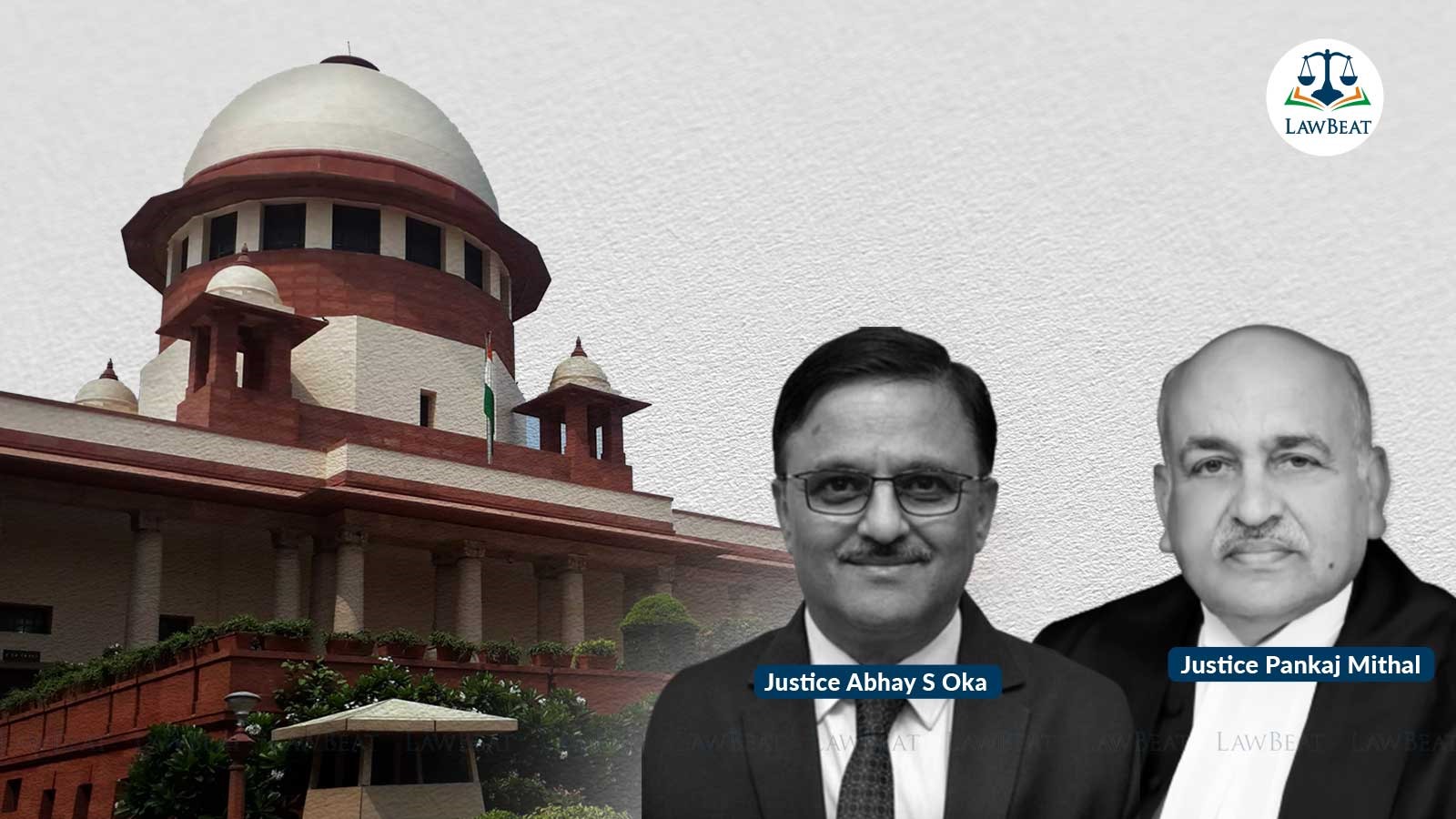IBC Moratorium Bars Recovery, But Claims Allowed: SC

Court said if the right to payment exists or if a breach of contract gives rise to a right to payment, the definition of ‘claim’ is attracted and even if that right cannot be enforced by reason of the applicability of the moratorium, the claim will still exist
The Supreme Court has said that Section 14(1) of the Insolvency and Bankruptcy Code imposes an embargo or prohibition on certain acts, however, it does not extinguish the claim of all the creditors of the corporate debtor, once the moratorium comes into force.
A bench of Justices Abhay S Oka and Pankaj Mithal said that if money advanced is secured by a promissory note or a negotiable instrument, a suit for recovery based on the said documents will not lie once a moratorium comes into force. But, the liability under the documents will continue to exist, it added.
"In fact, after moratorium, no creditor can recover any dues from the corporate debtor. But still, there is a provision for making a claim," the bench said.
Referring to the definition of ‘claim’ under Section 3(6) of the IBC, the bench said, "If the right to payment exists or if a breach of contract gives rise to a right to payment, the definition of ‘claim’ is attracted. Even if that right cannot be enforced by reason of the applicability of the moratorium, the claim will still exist".
Citing other provisions of the IBC, the bench said, there is no requirement incorporated that a debt becomes financial debt only when default occurs. Under Section 5(7) of the IBC, any person to whom a financial debt is owed becomes a financial creditor even if there is no default in payment of debt.
"This definition of ‘default’ becomes relevant only while invoking the provisions of Section 7(1) of the IBC when the CIRP (corporate insolvency resolution process) is sought to be initiated by the financial creditor. Section 7(1) provides that a financial creditor can initiate CIRP against the corporate debtor when there is a default on the part of the corporate debtor. There is no requirement under Section 5(8) of the IBC that there can be a debt only when there is a default. The moment it is established that the financial debt is owed to any person, he/she becomes a financial creditor," the bench said.
Court here dealt with the legal provisions while restoring China Development Bank, Exim Bank of China, Asset Care and Reconstruction Enterprises and others as financial creditors in the insolvency process of Reliance Infratel Ltd, which Reliance Project & Property Management Services, a subsidiary of Reliance Jio Infocomm, had acquired.
Court quashed and set aside the September 9, 2022 order of the National Company Law Appellate Tribunal, which declassified these four indirect creditors of Reliance Infratel including appellant China Development Bank, as financial creditors of the telecom company.
The court restored the March 2, 2021 order of the NCLT Mumbai branch.
As per the facts of the matter, Reliance Infratel’s resolution professional had earlier admitted claims worth Rs 41,055 crore from 35 financial creditors, including Rs 10,952 crore of China Development Bank and three other creditors.
The National Company Law Tribunal had approved the resolution plan submitted by Reliance Project & Property Management for Reliance Infratel, a debt-ridden subsidiary of Reliance Communications. Reliance Jio's arm had placed a bid of Rs 3,720 crore to acquire the tower and fibre assets of Reliance Infratel. The tribunal had also allowed the resolution professional to admit financial claims of China Development Bank, Exim Bank of China and other two creditors.
Respondent Doha Bank, however, challenged the NCLT's order in the appellate tribunal. It claimed that the four creditors were "indirect creditors" since they had not provided any loan to Reliance Infratel but had filed claims on the basis of Reliance Infratel hypothecating its assets in their favour to secure loans for Reliance Communications.
The NCLAT, allowing the plea by the Doha Bank, said the resolution professional considered the "Deed of Hypothecation" (DoH) as a "Deed of Guarantee", which was a misconception of the obligations.
The appellate tribunal held that the DoH is not a deed of guarantee. It further held that the only parties to the DoH were the Chargors (each of Reliance entities Reliance Communications Infrastructure, Reliance Communications, and Reliance Telecom) and the Security Trustee.
“The only object of the DoH was to create a charge on the property of the Chargors, Therefore, the Chargors cannot be treated as guarantors,” it had stated.
In 2022, the National Company Law Tribunal gave its approval to Reliance Project for the acquisition of Reliance Infratel. Thereafter, Reliance Jio's arm completed the 100% stake acquisition in Reliance Infratel.
Referring to Section 126 of the Indian Contract Act, 1872, the bench said, "A contract becomes a guarantee when the contract is to perform the promise or discharge the liability of a third person in case of default. Thus, when a person enters into a contract to perform or discharge the liability of a third party, the contract becomes a contract of guarantee".
Dealing with the issue of relevance of document of hypothecation, the bench said, "If we go by the title, DoH is a document creating hypothecation. In short, hypothecation means the process of using an asset as collateral for a loan. It acts as a protection to the lender when the borrower does not repay the loan. Only the title of a document cannot be a decisive factor in deciding the nature of the document or the transactions affected by the document".
Court therefore held that the name of the document was not a decisive factor. "Only because the title of the document contains the word hypothecation, we cannot conclude that guarantee is not a part of this document," the bench said.
Case Title: China Development Bank Vs Doha Bank Q P S C & Ors
